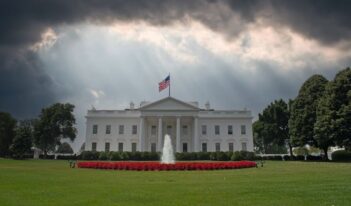
New bill would empower an independent commission to force agencies to eliminate or amend rules.
Companies struggling to keep up with regulatory compliance requirements may soon have a lighter load, as some members of Congress have recently set their sights on reducing “unnecessarily burdensome” regulations.
Citing a study from the Small Business Administration estimating the cost of small business compliance with federal regulations in 2008 at $1.7 trillion, the House Judiciary Committee’s Subcommittee on Regulatory Reform, Commercial, and Antitrust Law held a hearing on February 11th to discuss a draft bill, the SCRUB Act, which would create an independent regulatory review commission to cull agency regulations.
The SCRUB Act—which stands for “Searching for and Cutting Regulations that are Unnecessarily Burdensome”—would create a nine-member review commission with the power to identify regulations for elimination or amendment. It would also require all new proposed regulations to include a plan for retrospective review within ten years of the rule’s promulgation.
Under the bill, the President would select the chair of the new regulatory review commission and the House and Senate majority and minority leaders would determine the other eight members. The nine members would be tasked with identifying regulations that are “unnecessarily burdensome.”
The bill suggests the commission take into account factors such as whether the regulations “have been rendered obsolete by technological or market changes,” and whether they “have achieved their goals and can be repealed without target problems recurring,” and “are not justified by the benefits they produce for society within the United States.” But ultimately the commission would be free under the bill to formulate its own identification criteria. After identifying agency regulations for elimination or amendment, Congress would have 45 days to pass a resolution rejecting the selections.
If Congress did not reject the review commission’s findings, the commission would forward the list to the agencies for timely elimination or amendment of the particular regulations. Even if Congress passed a joint resolution rejecting the commission’s recommendations, however, the agency’s ability to promulgate new regulations would still be halted unless Congress passed a further resolution in opposition. This is due to the “Cut-Go Procedures” section of the SCRUB Act, which would require the agency to offset the costs of any new regulations it planned to promulgate by amending or repealing regulations the commission previously identified.
The SCRUB Act would go beyond current agency practice of cutting unnecessary regulations through agency retrospective review and identification. Current agency review practices stem from a series of executive orders released by President Obama in 2011 and 2012, which called for the Office of Information and Regulatory Affairs (OIRA) to conduct retrospective reviews of significant regulations.
At the Subcommittee hearing on the SCRUB Act, Professor Ronald Levin of Washington University in St. Louis pointed out that the Obama administration has already achieved success as a result of these initiatives. As further evidence of the recent executive orders’ success, Cass Sunstein, former OIRA administrator, praised federal agencies’ “ability to investigate the facts, to consider a range of options, and to assess the costs and benefits” in determining whether existing regulations should be altered or eliminated.
Even after President Obama’s executive orders, there have been numerous calls for additional measures to decrease the perceived unnecessary and costly accumulation of agency regulations. A 2013 policy memo from the Progressive Policy Institute, for instance, called for an independent review committee similar to the review commission that would be required if Congress passed the SCRUB Act. The authors of the report cited the lack of effective processes for reviewing regulations in the aggregate as a significant source of costs to small businesses and an impediment to economic growth.
Professor Levin, however, shared his opposition to the current SCRUB Act with the Subcommittee, arguing that the Act would violate the Constitution’s Appointments Clause. Under U.S. law, any appointee exercising significant authority pursuant to U.S. laws is an officer. The President, courts of law, or the heads of agencies are the only entities with power to appoint officers. As the commission members would exercise significant authority under the Act, Levin argues, congressional appointment of the review commission members would violate the Clause.
Regardless of its constitutionality, Levin stressed that the Act’s proposed review commission would: lack the same expertise and political accountability as individual agencies; lack meaningful external oversight that could check its determinations; and unnecessarily complicate and increase the cost of the rulemaking process. Levin also critiqued the required retrospective review plan for proposed regulations as overly burdensome and premature.
Still, House Judiciary Committee Chair Bob Goodlatte contended, “the SCRUB Act will cut unnecessary, costly federal regulations, which will result in more jobs, better wage opportunities for workers and a more competitive America.”
Echoing Goodlatte’s sentiments, Representative Spencer Bachus, Subcommittee Chair, stated that removing part of the “immense regulatory burden on the private sector…would see immediate economic growth,” and vowed to “continue the Committee’s ongoing efforts to achieve needed reforms in the federal regulatory system.”



